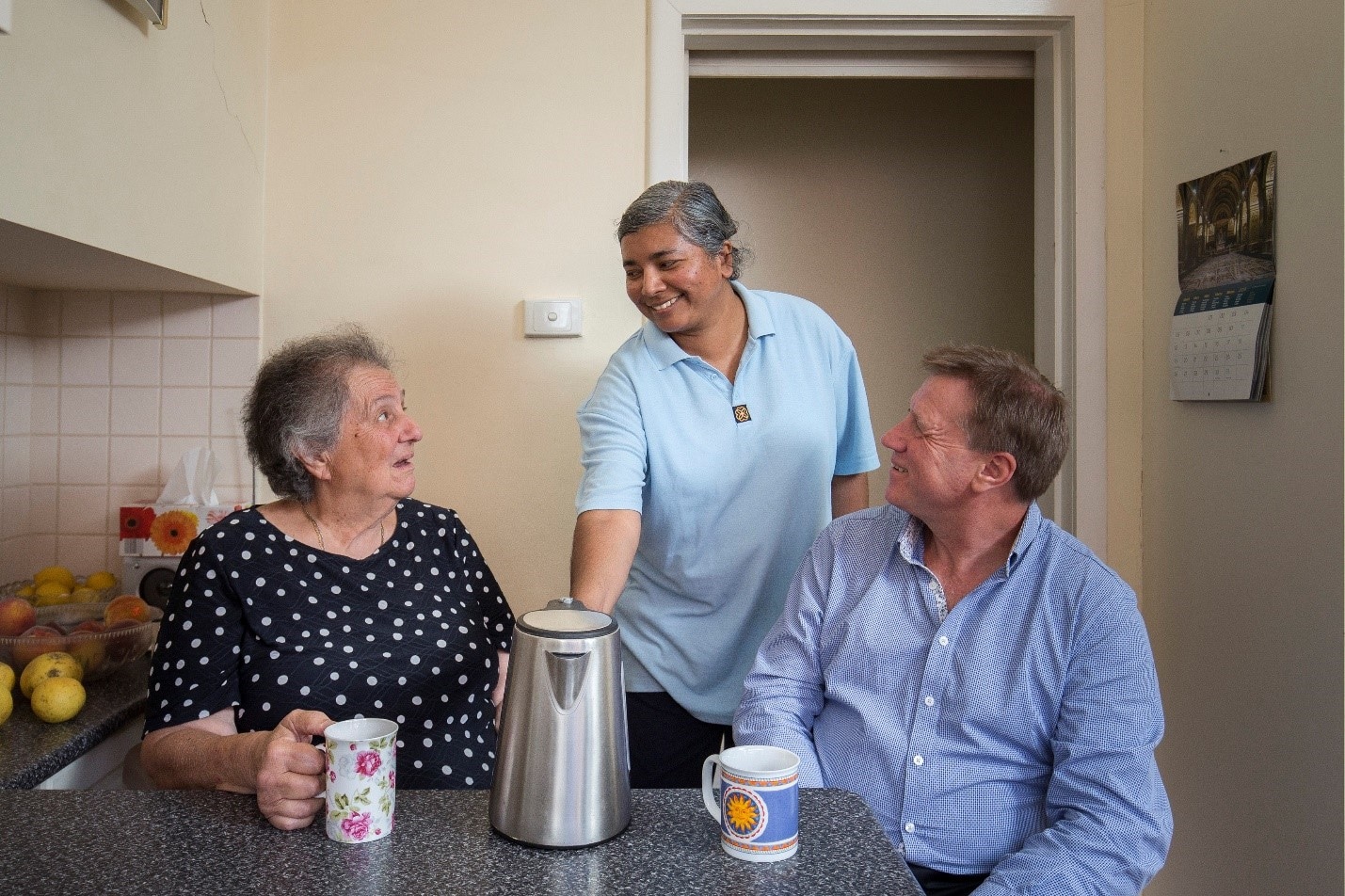Mar 14 2018
Australian Industry and Skills Committee (AISC) Chair, John Pollaers, is urging the aged care industry and consumers to get behind a newly-established Industry Reference Committee (IRC) and nominate for membership to help ensure the future high quality of aged care.
 John Pollaers with Serena Buhari (Benetas care provider); and Marilyn Busietta, of Melbourne, who receives home care services.
John Pollaers with Serena Buhari (Benetas care provider); and Marilyn Busietta, of Melbourne, who receives home care services.
Prof Pollaers said the Aged Care IRC needed to be an industry-driven group, with membership reflecting the diversity of the sector, particularly in the areas of palliative care, dementia, nursing, mental health, functional health and pharmacy, as well as including employee representatives and providers.
“Bringing about real change requires a whole of community and industry effort,” Prof Pollaers said.
Prof Pollaers, who also heads the Federal Government’s Aged Care Workforce Strategy Taskforce, said industry and the aged care community more generally, was telling the Taskforce there was a clear case for change in the education and training of the aged care workforce.
“We need to examine entry-level qualifications and career pathways, along with recognition of the full range of competencies required as we move toward living well models of care and recognise the benefits of integrated care,” Prof Pollaers said.
“As aged care evolves to become more consumer-centred, service providers and employees will need to strengthen their workforce with access to a broader range of skills and competencies, delivered through flexible training options.”
The Aged Care IRC will consult with industry and consumer advocates to identify barriers to skilling in areas like care planning and management, dementia care, consumer experience and quality of life, end of life and palliative care, family liaison, nutrition and food, mental health, pain management and leadership.
“Industry’s feedback highlights a number of areas to strengthen the current education and skilling programs to produce job-ready graduates with the right technical and behavioural skills,” Prof Pollaers said.
“The Aged Care IRC is a watershed opportunity that will help ensure the education and training system stays ahead of industry and community expectations and provides safe, quality care for all Australians.”
The Aged Care IRC will be responsible for reforming the qualifications framework for the aged care sector and will look across the tertiary education system to identify the evolving skills needs of workers to support the changing requirements of consumers. This includes stronger interaction between the VET and higher education systems and exploring micro-credentials, skill sets and other flexible training delivery mechanisms.
The structure and membership of the Aged Care IRC will be open for public consultation at https://www.aisc.net.au/irc/aged-care-industry-reference-committee.
It will also be supported by technical advisory groups dealing with issues such as diversity, rural and remote and indigenous aged care.
The final membership of the Aged Care IRC is expected to be announced in the first half of the year.